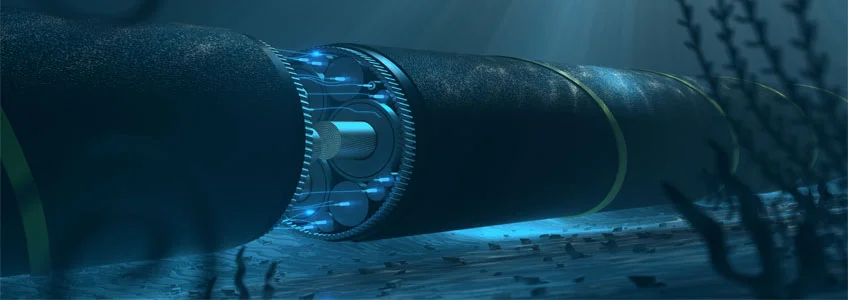Dr. Mónica Gracia, International director of Admissions at the Fundación Universitaria Iberoamericana (Ibero-American University Foundation, FUNIBER), participated in a study that has developed a new method known as ‘singcryption’ to improve security and efficiency in underwater wireless sensor networks (UWSN). This advance is especially useful in applications such as marine research and military surveillance, where it is crucial to transmit data securely and efficiently.
UWSNs are networks of devices that collect and send information from the bottom of the sea. Unlike land-based networks, these use acoustic signals to communicate, as radio waves do not work well underwater. However, acoustic signals have limitations: they are slower, have reduced bandwidth, and can suffer from variable delays. These characteristics make communication more complicated and traditional security methods not always adequate.
Traditionally, two processes are used to secure information: encryption (to keep information private) and digital signatures (to verify the authenticity of the message). Performing these two steps separately can consume a lot of energy and time, which is problematic in underwater devices that run on limited batteries. The ‘singcryption’ method combines both processes into one, reducing resource consumption and improving efficiency.
The study adapted this method to the specific characteristics of UWSNs. Its approach not only protects the transmitted information, but also optimizes the energy use of the sensors, extending their useful life and improving the overall performance of the network.
To verify the effectiveness of the proposed method, comparative tests were carried out with existing techniques. The results were promising: the new scheme reduced computational cost by 40%, energy consumption by 30%, and communication overhead by 25% compared to previous methods. In addition, it proved to be scalable, maintaining consistent performance in networks ranging from 50 to 200 nodes.
This development has important implications for the design and use of UWSNs in critical applications, where secure and efficient communications are essential. The proposed method offers a robust and adaptable solution that can be easily integrated into existing systems, facilitating the implementation of secure communications in underwater environments.
If you would like to learn more about this study, click here.
To read more research, check out the UNEATLANTICO repository.
The Ibero-American University Foundation (FUNIBER) offers scholarships for the Master’s Degree in Environmental Engineering and Technology. This program offers comprehensive training in the prevention and solution of environmental problems arising from industrial activities, always taking into account economic and social factors. If you want to specialize in environmental management and be part of the change towards a sustainable future, study this master’s degree to develop technical solutions that integrate economic growth and sustainable development.
